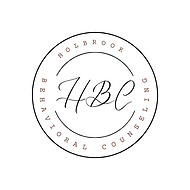Navigating through Mental Wellness Roadblocks: Overcoming Resolution Barriers and Achieving Your Goals
- Melissa Holbrook, LMFT

- Dec 30, 2024
- 3 min read
Setting resolutions often marks a fresh start, filled with hope and the potential for personal growth. However, as we pursue our objectives, many of us confront barriers that can slow our progress. These obstacles can arise from emotional challenges or a lack of support. In this post, we will discuss effective strategies to overcome these hurdles and maintain mental wellness while working towards our goals.
Identifying Barriers to Resolution Progress
Recognizing the challenges that hold you back is the crucial first step toward overcoming them. Common obstacles include negative self-talk, fear of failure, and external factors like time limitations or insufficient resources.
Negative self-talk can be particularly debilitating. Phrases like "I can't" or "I'm not good enough" can dampen your motivation and hinder your progress. Studies show that people who engage in negative self-talk are up to 40% less likely to achieve their goals. Keeping a journal can be beneficial in this regard. By tracking your thoughts, you’ll spot negative patterns that may be sabotaging your efforts.
Fear of failure is another significant roadblock. Research indicates that about 70% of people tend to avoid risks out of fear of failing. Many hold back from pursuing their goals due to the worry of not living up to expectations or facing judgment. To tackle this fear, try changing your view of failure. See it not as a dead end but as a stepping stone that offers valuable lessons.
Lastly, consider external factors that may contribute to your setbacks. Are you juggling too many responsibilities? According to studies, nearly 60% of people report feeling overwhelmed by their workload, which can derail goal achievement. Assess your environment and resources to identify if adjustments can be made.
By recognizing these barriers, you'll be better equipped to devise a plan to confront them.
Developing Resilience through Therapy Practices
Resilience is the ability to recover from setbacks and maintain focus on your goals. Therapeutic practices can significantly enhance this resilience.
Cognitive-behavioral therapy (CBT) is a proven method for building resilience. It helps you identify and challenge negative thought patterns. For example, if you think, "I will never succeed," CBT teaches you to replace that thought with, "I have succeeded in the past and can do so again."
Mindfulness and meditation are other powerful approaches for cultivating resilience. Engaging in mindfulness practices for even 10 minutes a day can help reduce stress levels and improve mental health. Research shows that individuals who practice mindfulness experience up to a 30% reduction in anxiety.
Additionally, physical activities like yoga or regular exercise can be beneficial. Exercise releases endorphins, which improve mood. A study found that people who engage in regular exercise are 25% less likely to struggle with feelings of depression and anxiety.
Incorporating these therapeutic practices into your routine can significantly enhance your ability to navigate challenges effectively.

Creating a Support System for Sustained Goal Achievement
A robust support system can dramatically improve your chances of meeting your resolutions. Connecting with positive influences, whether friends, family, or professional networks, creates an environment that fosters growth and accountability.
Start by communicating your goals with those around you. Share your objectives with friends or family who can provide encouragement and advice. You might find that others are also pursuing similar goals, creating an opportunity for mutual support.
Consider seeking a mentor or joining a group that shares your interests. For example, support groups have been shown to enhance goal attainment by up to 50%. These connections can provide insights and experiences that guide you on your journey.
Moreover, having accountability partners can be vital for your success. Team up with someone who shares your goals, and regularly check in with each other to offer motivation and reinforcement. This partnership can boost your commitment and help you stay focused.
Remember, building a strong support system takes time and effort. Nurture your relationships thoughtfully to create a community that supports your growth and aspirations.
Embracing Your Journey
Overcoming resolution roadblocks requires a well-rounded approach that includes self-awareness, resilience, and support. By identifying the barriers that slow your progress, developing resilience through therapeutic practices, and establishing a reliable support network, you set yourself up for success in realizing your goals.
Be patient with yourself as you navigate this journey. Growth is not a straight path, and setbacks are part of the process. Embrace these learning experiences and use them to shape your future steps.
As you work through these challenges, prioritize your mental wellness. The closer your mental health aligns with your goals, the better your chances of success. By intentionally addressing barriers, building resilience, and fostering supportive relationships, you can not only set resolutions but also take meaningful strides toward achieving them. Here's to clearing those roadblocks and making positive progress in your journey!
.png)



Comments